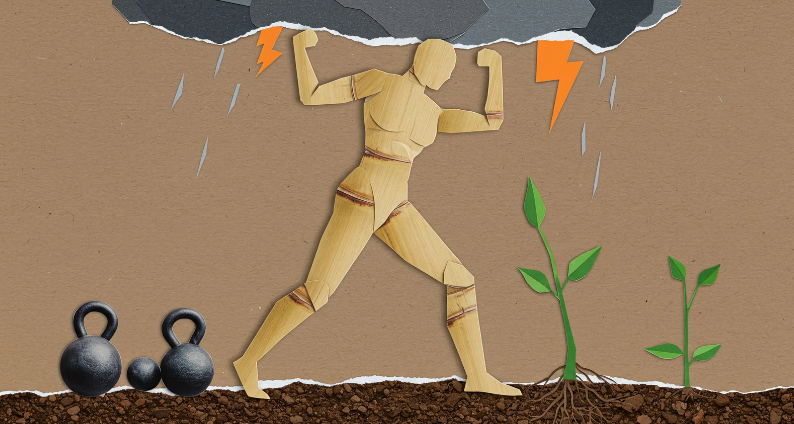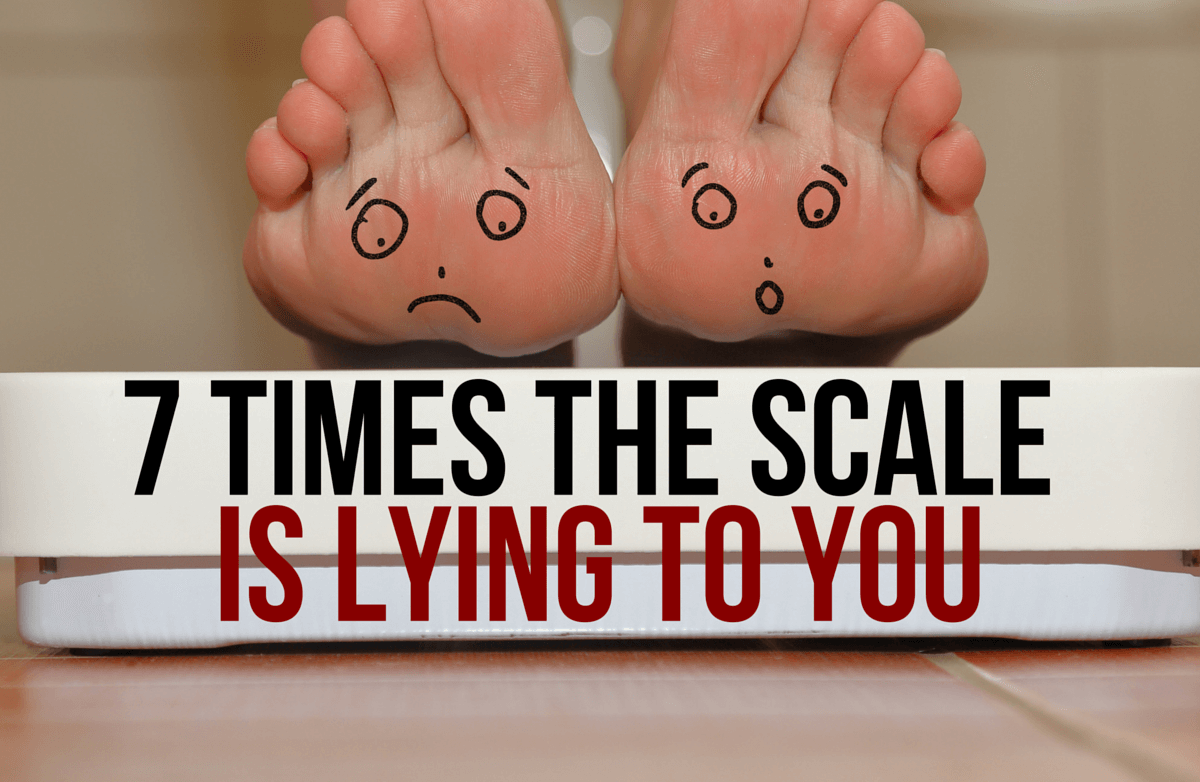Wouldn't it be nice if you woke up every morning with plenty of time, energy, stamina and confidence to tackle a kick-butt workout? Or, if you could stop into the gym on the way home from work, bag fully packed with workout gear, fueled from a healthy lunch, ready to tackle that Zumba class? In the real world, your best intentions could be sidelined by the snooze button, countless kids’ activities or late nights at the office. That’s when the excuses start to creep in, effectively pushing your exercise ambitions to the back burner.
In most cases, the unhealthier path is the one of least resistance. It's almost always easier to come up with reasons to skip the workout and order the takeout—but those choices don't come with the rewards.
In a blog post by neuroscientist and mind-body expert Dr. Claudia Aguirre, she discusses the psychology behind excuse-making: "It serves as a distraction of sorts that prevents us from achieving the task, but it stems from a deeper, unconscious desire to protect ourselves...against anxiety and shame." It’s like a vicious cycle; the more anxiety and shame we feel, the more likely we’ll be to keep coming up with fresh excuses to progress toward our goals. "In a way, this self-protective mechanism works," says Aguirre. "You feel less burdened, less anxious and…off the hook. But is this a good thing?"
Every lifestyle is vulnerable to its own particular set of excuses. For instance, the busy parents hustling kids from one school meeting to the next activity can't fathom setting aside time for themselves, while the workaholic values deadlines over deadlifts. Even if you're in one of the common high-excuse groups, you are stronger than the excuses that threaten to derail your progress—no matter how persuasive they may seem. With these slight mindset adjustments and some smart planning, you can keep fitness on your calendar and bust those exercise odds.
The Busy Moms & Dads
During those rare times when you're not changing a diaper, commandeering a carpool or refereeing homework hour, a catnap probably seems a lot more appealing than a boot camp. Sure, parenting is all about putting the kiddos first, but that doesn't have to mean sacrificing your own health or strength.
Why it's important: Children are like sponges, absorbing everything from your speech and moods to your diet and exercise habits. According to a study by the American Dietetic Association Foundation, kids under age 12 cited their parents as their top nutritional role models, and were also more likely to mimic mom's or dad's sedentary lifestyle. Every time you choose to walk around the block instead of snacking in front of the TV, you're setting a healthy example for your kids to follow. Plus, studies have shown that exercise can be an effective, natural way to treat and prevent postpartum depression.
How to work it in: If you have a baby or toddler, catching an hour of exercise can seem as likely as winning the lottery, but a few smart workout tips for new parents can work wonders. Consider investing in a jogging stroller or front carrier so you can bring your little one along on workouts, choose a gym that offers child care or enroll in a parent-baby yoga class. While your baby is napping at home, exercise in the comfort of your living room with an exercise video. If you have older children, bring them along on your runs, walks or bike rides to combine fitness and family bonding.
The Workaholics
Your career may be on the fast track, but is it slowing down your fitness goals? With Americans spending an average of almost 9 hours a day at the office—and many professions far exceeding that number—it's easy to see how a demanding job can make it difficult to stay in shape.
Why it's important: Stress is a fact of modern life, and work is a major contributing factor. Studies have shown that exercise can be instrumental in reducing stress and anxiety. It also helps to boost mental health and sharpen your problem-solving and decision-making skills, which can improve your productivity in the workplace.
How to work it in: You don't have to spend your whole evening at the gym to reap the benefits of exercise. According to the CDC, just 30 to 60 minutes of activity (cardio, strength or a combination), three to five times a week will have an impact. After a long day of meetings and emails, a walk around the block or a yoga video can help bust stress while boosting your health. Can't squeeze it in after work? Try sprinkling multiple mini-sessions of exercise in throughout the day, like walking during conference calls or trading the elevator for the stairs. If you live close enough, consider starting the day on the right foot by walking to work or opting for a parking spot farther away.
The World Travelers
You can barely keep track of what time zone you're in, so how can you be expected to find time for exercise? While it can be challenging to fit in workouts when your regular routine is a distant memory—especially when delayed flights, off-site meetings and client dinners throw a wrench into your best intentions—it is possible to maintain some semblance of a fitness regimen on the road.
Why it's important: Staying active while traveling could help to prevent or alleviate symptoms of jet lag, including fatigue, nausea, headaches, irritability, digestive problems and lack of focus. Plus, the key to fitness success is consistency: Breaking the exercise habit for even a few days could cause you to fall off the wagon and derail your progress.
How to work it in: Choose a hotel that has a fitness facility. If you prefer exercising outdoors, research running and walking routes ahead of time. Pack space-efficient workout gear, such as resistance bands and jump ropes, and use clever packing strategies for keeping fitness clothes fresh. If you're traveling with companions, enlist a workout buddy to keep you motivated.
The Weight-Loss Warriors
Have you ever said, "I'm too big to run" (or walk, or do yoga, or whatever exercise is being proposed)? When your goal weight still seems far away, an activity that is no big deal for most people—whether it's running three miles, trying a new spinning class or just stepping on the treadmill at the gym—can seem like an insurmountable feat. While working out while overweight can be challenging, it's not reason enough to throw in the towel—quite the contrary, in fact.
Why it's important: There's no way around it: Along with proper nutrition, regular exercise is an essential ingredient in the recipe for weight loss success. And remember, workouts will only get easier from here. Once you've gotten those first few sweat sessions under your belt, anything will seem possible. Your strength, stamina and confidence will grow exponentially as exercise becomes less of a chore and more of a habit. Before you know it, the days of groaning about driving to the gym will be a distant memory.
How to work it in: The key is finding an activity that you enjoy and is realistic for your current physique (or can be modified). Consider keeping a workout log where you record your feelings before, during and after each session; this will help you track your progress and buoy your motivation. Invest in some comfortable workout clothes that flatter your current figure, not a larger or smaller version of it.
Those on the Road to Recovery
If you've never been sidelined with an injury, you're among the lucky few. Most of us have experienced at least some degree of damage, whether it's a sprained ankle, stiff shoulder or torn meniscus. It's normal to feel hesitant about returning to exercise after injury or surgery, but there's no reason to stay benched (as long as you have a doctor's clearance to get moving again).
Why it's important: Refraining from exercise for too long can lead to weight gain, which puts more pressure on your joints and can lead to repeat injuries. When you get the green light from your doctor, starting out with safe, low-impact exercise—with any necessary modifications—can help acclimate your body to movement and accelerate your rate of recovery.
How to work it in: First, it's important to understand what caused the original injury so you can take precautions against repeating it. Talk with a sports doctor or physical therapist to get exercise recommendations tailored to your condition and goals. Consider working with a personal trainer or attending an expert-led fitness class to ensure that you're using proper form and technique.
Don't Fall Victim to These Common Excuse Traps
Related Articles
-
 How to Exercise Your Resiliency Muscle
How to Exercise Your Resiliency Muscle
-
 How Does Personality Affect Weight Loss?
How Does Personality Affect Weight Loss?
-
 5 Ways to Defend Yourself Against Motivation Roadblocks
5 Ways to Defend Yourself Against Motivation Roadblocks
-
 4 Ways Being Selfish Can Help You Lose Weight
4 Ways Being Selfish Can Help You Lose Weight
-
 Is Clutter Keeping You From Reaching Your Goals?
Is Clutter Keeping You From Reaching Your Goals?
-
 5 Mind Games You Need to Stop Playing
5 Mind Games You Need to Stop Playing
-
 5 Ways to Socialize Without Derailing Your Weight-Loss Goals
5 Ways to Socialize Without Derailing Your Weight-Loss Goals
-
 7 Times the Scale is Lying to You
7 Times the Scale is Lying to You



